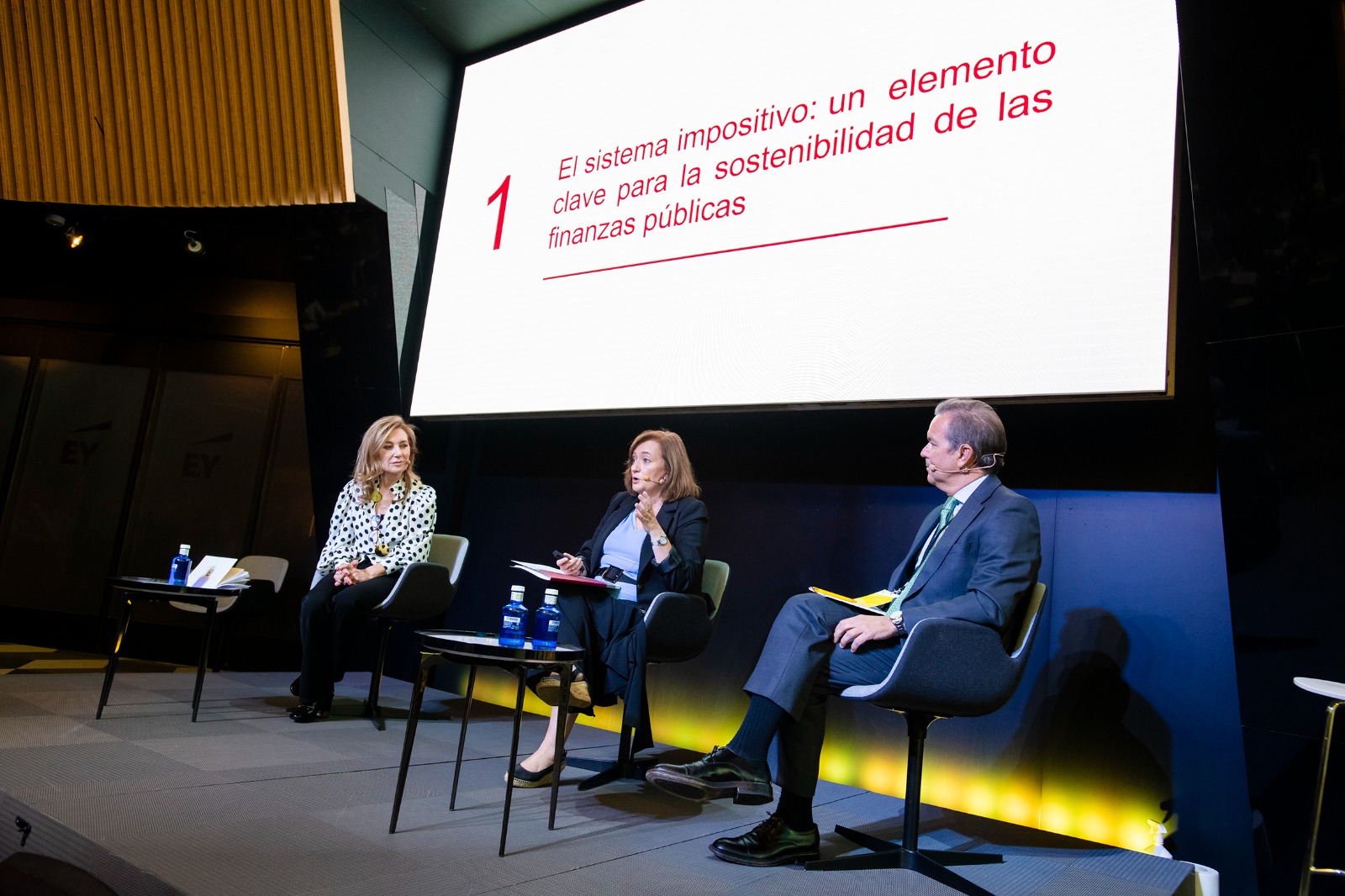- The President of the Independent Authority for Fiscal Responsibility (AIReF) states that ensuring the sustainability of public finances requires an analysis of both the revenue and expenditure sides
- Cristina Herrero stressed AIReF’s role as an independent evaluation body that can contribute by providing objective data for decision making
The President of the Independent Authority for Fiscal Responsibility (AIReF), Cristina Herrero, took part today in the “Tax Workshop: EY Tax Outlook 2022”, organised by EY. During the session, she stated that the tax system is a key element for the sustainability of public finances.
In the first part of her talk, Cristina Herrero analysed the institution’s fiscal outlook for the medium term. She explained that in order to guarantee the sustainability of public finances, which in the case of Spain already had an underlying imbalance prior to the COVID-19 crisis, fiscal spaces addressing both expenditure and revenue are required.
In its report on the Stability Programme Update (2021-2024 SPU), AIReF forecast that, excluding the Recovery, Transformation and Resilience Plan (RTRP), the weight of revenue as a percentage of GDP would gradually fall until it returned at the end of the period to a ratio similar to that which existed prior to the pandemic. However, the buoyancy shown by revenue in 2020 and 2021 might bring forward to this year the recovery of the main tax categories, in terms of volume, to pre-pandemic levels.
Regarding expenditure forecasts, the President of AIReF stated that the weight of expenditure as a percentage of GDP will also fall in the medium term, but that it may be higher than its pre-pandemic ratio in 2024. In the long term, the Institution identifies a challenge arising from an ageing population that would imply an additional source of pressure on public spending. With these medium-term expectations for revenue and expenditure, she clarified that although the deficit is expected to fall as a result of the removal of measures and the baseline behaviour, the imbalance may remain higher than the pre-pandemic levels.
Accordingly, with public debt at record highs and the expectation that it will remain high, it is imperative to guarantee the sustainability of public finances. Cristina Herrero stated that this will require the generation of fiscal spaces, taking into account both the expenditure and the revenue sides. On this point, AIReF’s role as an independent evaluation body can contribute towards the analysis of the sufficiency, equity and efficiency of public policies by providing objective data for decision making.
Contributions in tax matters
Cristina Herrero listed some of the contributions that AIReF can make in tax matters. She explained the institution’s approach to making its revenue forecasts, which are necessarily based on AIReF’s macroeconomic forecasts and on its various taxation models, as well as knowledge about the collection mechanism and its accounting.
She explained the difficulties involved in these forecasting exercises, in terms of methodology and available information and, in particular, those associated with distortions affecting underlying relationships – such as the example of the Covid-19 crisis – and those inherent to estimating the collection capacity of newly-created taxes.
The President of AIReF highlighted how these contributions have been strengthened with the Spending Review of Tax Benefits published in July 2020, which analysed 13 tax benefits with a cost of 35 billion – 60% of the total existing benefits. The aim was to assess whether each benefit meets the objective for which it was created and whether it generates any distortion that means that it should be reformulated.
AIReF’s evaluation activity has recently been consolidated with the creation of the new Public Spending Evaluation Division.






